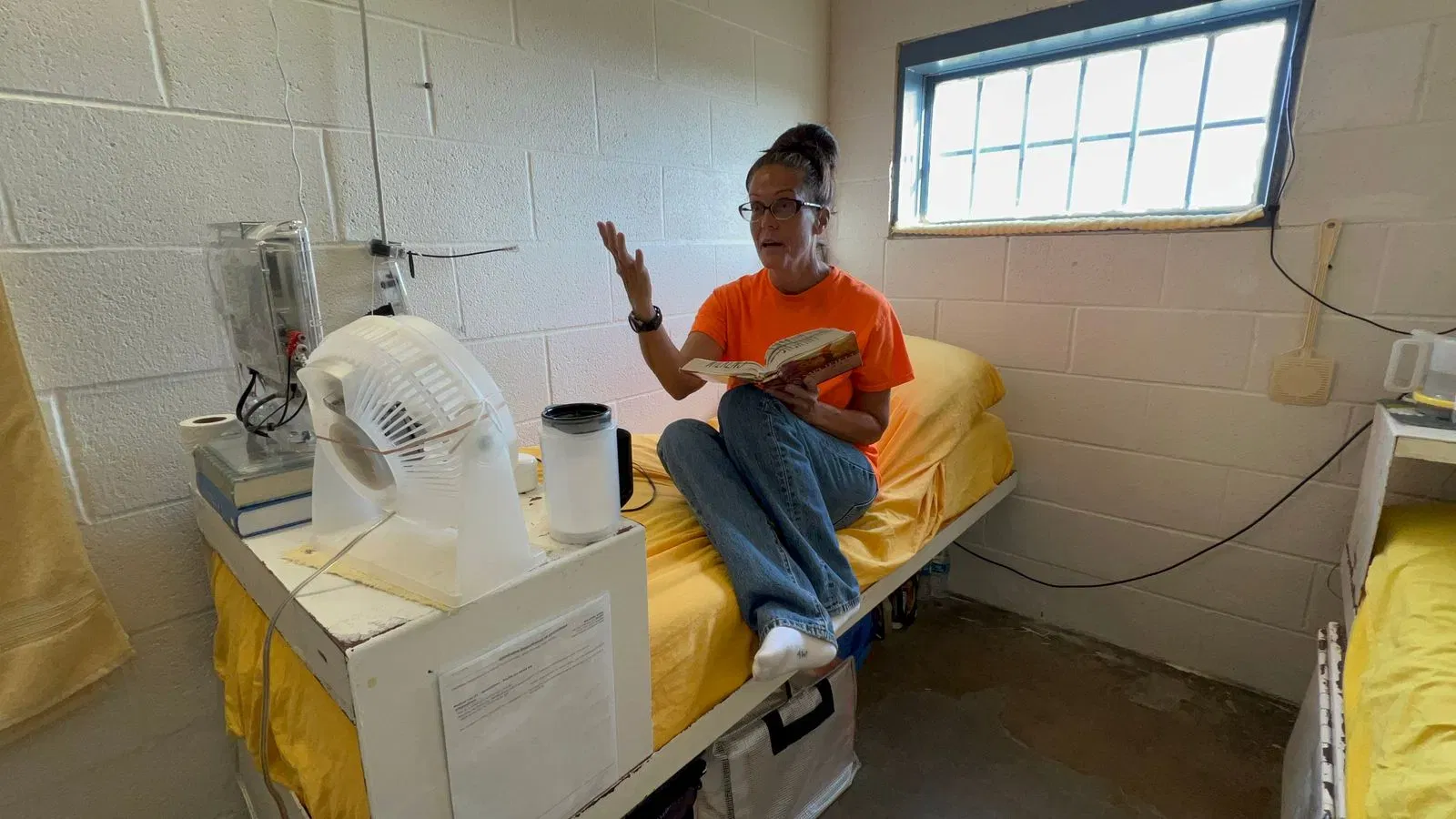TULSA, OKLA. (KTUL) — “I was constantly afraid for my life,” April Wilkens said about the two years leading up to the night in April 1998 when she shot and killed her former fiancé, Terry Carlton, in his midtown Tulsa home.
The abuse Wilkens described is documented in three protective order filings, more than a dozen calls to police, photographs of her injuries, and pictures showing her home ransacked.
Wilkens, 55, has spent 27 years in prison but could gain her freedom under a new domestic violence law. Through the Oklahoma Survivors’ Act, she was granted a resentencing hearing, scheduled to start Wednesday. The law gives domestic abuse survivors a chance at reduced sentences if their crimes were tied to that abuse.
Supporters see the measure as a way to bring justice to people who say they were defending themselves from extreme abuse.
In the year since it went into effect, district attorneys across Oklahoma have opposed every application that has reached a hearing so far. One person has been released from prison, and a Tulsa County judge ruled against granting relief following a hearing.
Wilkens, a single mother, met Carlton in 1995 when she was shopping for a car at a dealership owned by the Carlton family.
“He was just so charming. He made me feel so wanted and special,” said Wilkens, who agreed to marry Carlton months into their relationship. “I just thought, ‘Oh, I found my prince and we are going to live happily ever after.’ I just didn’t know what a fool I was.” Things changed after they became engaged, she said.
Wilkens’ application states she was “choked, raped, beaten, threatened, stalked, manipulated, and controlled” by Carlton, 40, during their on-and-off again relationship.
There was no dispute over who killed Carlton. Wilkens acknowledged shooting her ex-fiancé and testified that he raped her, threatened her with a gun, and handcuffed her that night.
Neighbors of both Carlton and Wilkens testified they had witnessed altercations, supporting the defense’s claim of abuse.
Wilkens had recorded a conversation with Carlton in which they discussed abuse and sexual assault, but the tape was never played in court.
Jurors did hear evidence about Wilkens’ mental health struggles, drug use, and the fact that she chose to go to his home that night.
“I did not go there to kill him,” said Wilkens. “I tried to make peace with him, but I would also say that I did not deserve to be beaten, raped, threatened to be sodomized and murdered because I went to his house.”
An autopsy report indicated Carlton was shot eight times.
Her claim of self-defense and Battered Woman Syndrome was rebuked by a jury that convicted her of first-degree murder. She was sentenced in 1999 to life in prison, with the possibility of parole.
Numerous attempts to speak with the Carlton family over the last three years have been denied. An obituary for Calton stated he was a “good athlete, loved auto and motorcycle racing,” and was a “collector, refinisher, builder of guitars and was a very talented musician.”
All of Wilkens’ appeals, post-conviction relief, and parole attempts have been unsuccessful.
In March 2022, despite the investigator recommending she be granted parole, the Tulsa County District Attorney’s Office objected to it. A statement obtained through the Oklahoma Pardon and Parole Board from the DA’s office wrote that the state believes the sentence is “appropriate” and recommends the “seriousness of the offense”.
It states she “presents a risk to the safety of the public” and, if she had committed the crime today, she would “not be eligible for parole for another 17 years”.
The OSA hearing has been a long time coming for Wilkens and her family. Her niece told NewsChannel 8 in 2022 that she could not get local news outlets to take a look at the case. Attorneys Colleen McCarty and Leslie Briggs took an unconventional route of producing a podcast to draw attention to Wilkens’ plight.
In the years since, the 55-year-old has become the face of the sentencing reform measure and, if released, says she plans to push for similar laws in other states.
“There are so many survivors,” said Wilkens. “I am one of many in Oklahoma, and one of many in the entire nation who should not be behind bars.”


















